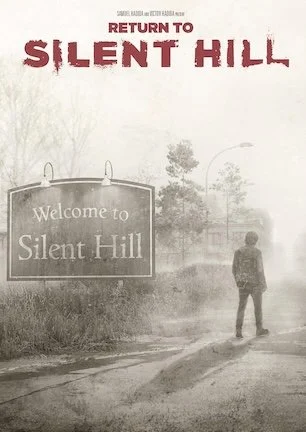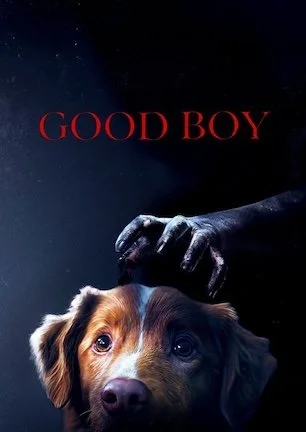Studio: Netflix
Director: Joe Berlinger
Writer: Michael Werwie
Producer: Michael Costigan, Nicolas Chartier, Joe Berlinger, Ara Keshishian, Michael Simkin
Stars: Zac Efron, Lily Collins, Kaya Scodelario, Jeffrey Donovan, Angela Sarafyan, Dylan Baker, Brian Geraghty, Terry Kinney, Haley Joel Osment, Jim Parsons, John Malkovich
Review Score:
Summary:
Liz Kendall struggles to reconcile her romantic relationship with Ted Bundy while the serial killer stands trial for murder.
Review:
Ted Bundy repeats a familiar mantra throughout “Extremely Wicked, Shockingly Evil and Vile.” When a reporter asks about murder charges against him, Bundy enunciates through a defiant sneer, “I am not guilty.” More than once, his long-suffering girlfriend Liz receives some vague assurance of, “I’m gonna fix this.” Even in front of the judge sentencing him to death at his final trial, Bundy insists, “I’m not the one responsible for these horrific acts.”
Bundy of course lied each and every time some profession of imaginary innocence hissed out of his smirk. Yet an entity who is actually innocent of many accusations against it is Netflix.
Beginning with their “Conversations with a Killer: The Ted Bundy Tapes” documentary series, Netflix took substantial heat for supposedly glorifying the convicted murderer as an entrancing icon. Controversy continued with the casting of heartthrob Zac Efron in “Extremely Wicked,” furthering a perception that Bundy was being idolized as a sinister sex symbol. Eyebrows were rising so high, Netflix had to take to Twitter to directly downplay discourse about “Ted Bundy’s alleged hotness.”
Based on Elizabeth Kendall’s memoir “The Phantom Prince: My Life with Ted Bundy,” “Extremely Wicked” never suggests that the audience see Bundy with admiration or with sympathy. A scene featuring Bundy and Liz early in their romance initially appears almost schmaltzy with its upfront framing. Efron’s beaming smile finds its brightness bested by soft rays of sunlight bursting through a window behind him. An acoustic guitar then accents his sweetness in a tender morning moment where Bundy fixes breakfast for Liz’s two-year-old daughter Molly.
Yet without resorting to anything as conspicuous as a close-up, documentarian turned narrative feature director Joe Berlinger stays keen to make sure Bundy can be seen holding a Michael Myers kitchen knife in a wide angle. Anyone is free to find this subtly wagging finger as a reminder that while Bundy possesses the ability to be charming, his capacity for chilling carnage is never to be ignored.
Efron expertly exploits these moments in master shots. Almost any time Bundy appears onscreen with someone who isn’t looking directly at him, Efron intentionally ignites a wicked spark behind his eyes. His portrayal permits seeing Bundy objectively even though a suggestive scent in his behavior steers perceptions toward uncomfortable insinuations. Zac Efron terrifically toes a line that reflects Bundy’s eerie ability to be charismatic, cocky, clever, and creepy concurrently. When he flips from confident smugness to feigned incredulity at being convicted for crimes he knows he committed, one can almost be convinced Bundy is genuinely stunned.
Berlinger maintains this sense that the movie isn’t picking a side, even though it definitely does by its conclusion, through a multitude of tricky techniques. D.P. Brandon Trost’s camera employs a slight “Friday Night Lights” sway to put a pinch of off-the-cuff authenticity into cinematography. Until a flashback in the finale, “Extremely Wicked” never depicts any of Bundy’s crimes either. An argument might infer the film thus sows a seed of doubt regarding Bundy’s guilt. Really though, Berlinger simply shows an abundance of confidence that the combination of stripped-down direction and intuitive acting conveys events without undue judgment. He trusts viewers to draw correct conclusions about the people in Bundy’s immediate periphery without artificial influence.
For a dialogue-dependent movie almost exclusively constructed from scenes of confrontational conversation, “Extremely Wicked” rarely lags. The film refuses to resort to montages and doesn’t catch its breath in unearned spans of silence. Berlinger keeps every character on a forward roll, maintaining momentum that only infrequently pauses for an arguably excisable scene.
“Extremely Wicked” plays like two films in one. The first features Ted Bundy’s life in between crimes, as both a phony family man and a scheming prison inmate. The second examines the breakdown of a bystander, Liz, whose blinded love causes her to become a different type of casualty among a murderer’s manipulative machinations.
Had its spotlight swung more fully toward Liz, and opted to add more from the perspective of Bundy’s other key admirer Carole Ann Boone, “Extremely Wicked” would feel more dialed in to the women Ted Bundy broke mentally and emotionally instead of physically. It would be reasonable to contend that the featured females don’t consistently remain primary focal points when the film has an opportunity to give voices to these people.
Then again, Carole Ann Boone disappeared from the public eye following her divorce from Bundy and his subsequent execution. We don’t see her forced to reconcile with the terrible truth about the man she loved the same way we do with Liz because no one can be certain something similar occurred. Such contextual absences are in keeping with the film’s “what you see is what you get” approach to presenting events and outcomes largely as they were, relative for a dramatized biopic anyway.
Much like the movie “Shattered Glass,” “Extremely Wicked, Shockingly Evil and Vile” showcases a compelling character study of a sociopath whose actions catch ordinary people in his orbit unaware. Because his crimes aren’t sensationalized with unnecessary recreations, Ted Bundy’s tangible terror isn’t the subject that becomes transfixing. The intangible trauma becomes frighteningly fascinating as a tragic tale of how violence perpetuates victims long after initial crimes are committed.
Review Score: 80






While the 110-minute runtime could use a trim to maintain more energy, “Redux Redux” is an easy recommend for anyone who enjoys low-key sci-fi.